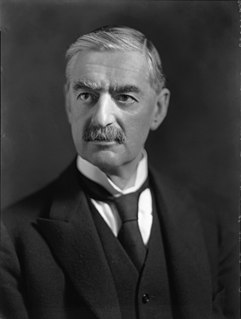A Quote by Robert Kennedy
Unions, by and large, are democratic organizations with freely chosen leaders and policies determined by the membership. They concern themselves with individual dignity not only in their aims but in their method. We have no better example of what is worthy of emulation abroad than the workings of a good union.
Related Quotes
Executives run organizations. In business, we need executives who have clarity, people who are in touch with themselves. Then, in leadership and management positions, they can be good role models and leaders. The people I know who have really moved their organizations are scrupulous role models. They are so clear about honesty, integrity, openness, mutual self-respect, dignity for the individual, and creativity, that they don't deviate from these principles at all in their behavior.
Labor unions have a long history of benefitting all workers, even those who are not members of unions, because everyone's wages go up. If we don't increase membership - and membership in labor unions is going down because of the attacks against organized labor - it's something every single American, whether they're officially in a union or not, should be concerned about. It's a spiral. It's a weakening of the middle class and our economy can't sustain that.
You know, when I was in college, there was a big debate: Do unions raise wages? Well, with regard to industrial unions, there were arguments back and forth -- international competition. It is now clear, I think, that whether or not you think unions raised wages 50 years ago, the absence of unions and their weakness that is inflicted by anti-union public policy depresses wages. The fact is that people who are not represented, in the service industries in particular, are the victims of policies which depress their wages.
Unions are for 'collective bargaining,' not individual bargaining. It follows that most of the achievements of a union, even if they were more impressive than the staunchest unionist claims, could offer the rational worker no incentive to join; his individual efforts would not have a noticeable effect on the outcome, and whether he supported the union or not he would still get the benefits of its achievements.
Markets are interested in profits and profits only; service, quality, and general affluence are different functions altogether. The universal, democratic prosperity that Americans now look back to with such nostalgia was achieved only by a colossal reigning in of markets, by the gargantuan effort of mass, popular organizations like labor unions and of the people themselves, working through a series of democratically elected governments not daunted by the myths of the market.
The teachers' unions that block school reform have done serious damage to the union brand. The public no longer views unions as their friend, much less their champion. They view them as corrupt, intransigent and more interested in protecting their political clout within the Democratic Party than protecting their members or even school children.
Most blacks want school vouchers, but most liberals vehemently oppose them. Why? Because what is good for teachers' unions is of more importance to the Left than what is good for blacks. Who, then, is racist? By their own admission, and by the policies they pursue, the answer is the people who call themselves progressive.
..where effective competition can be created, it is a better way of guiding individual efforts than any other... regards competition as superior not only because it is in most circumstances the most efficient method known but even more because it is the only method by which our activities can be adjusted to each other without coercive or arbitrary intervention of authority.


































